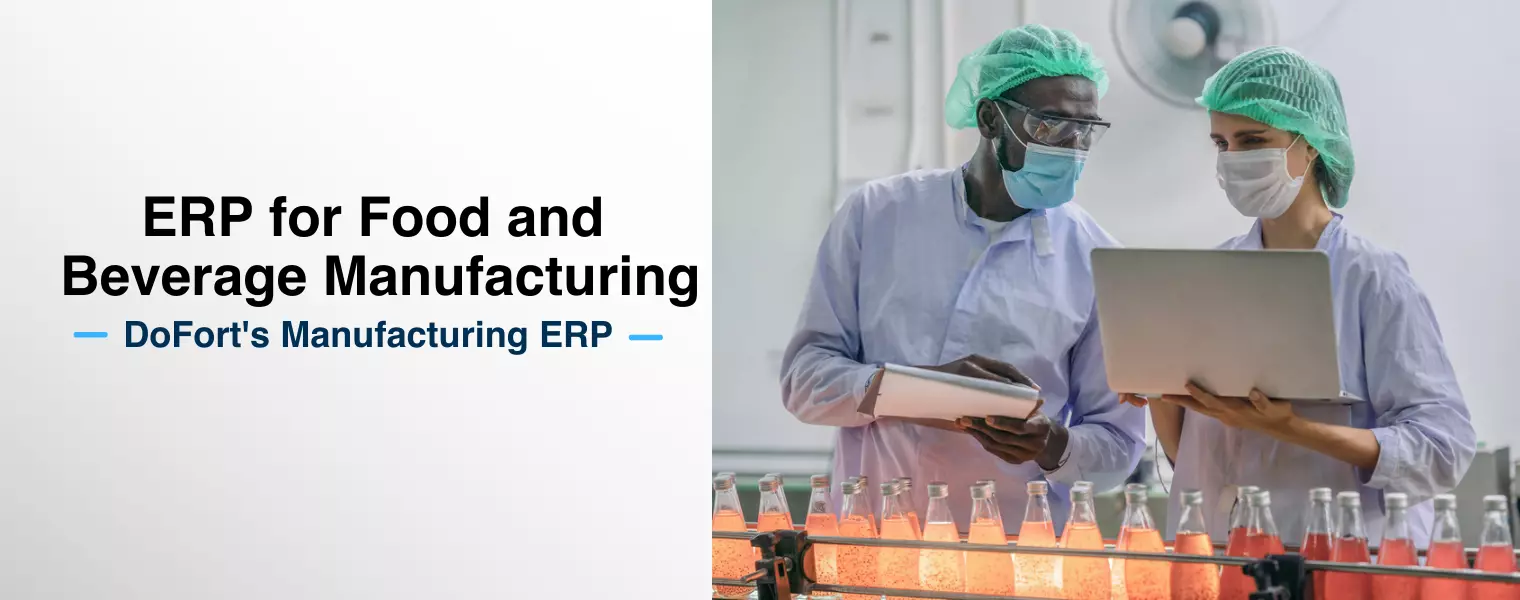
Food and beverage experts like you are continuously looking for new methods to offer your company a competitive advantage. It might be higher-quality ingredients, an inventive new manufacturing technique, or a new technology equipment that can save the organisation money. the important thing is that it improves your production capacity and profitability.
Of course, several considerations must be considered when determining which of the prospective improvements in front of you are worth pursuing. How much money, time, and effort will your organisation be required to invest? How long will it take to see results? Will it all be worthwhile in the end?
It can be difficult to obtain accurate responses to such concerns, but there is one option that will have a long-term positive influence, regardless of the scale or nature of your operations: an enterprise resource planning (ERP) system . Implementing these platforms may be a time-consuming and difficult process, but the revolutionary outcomes are well worth the effort.
It is not an exaggeration to state that ERP for food and beverage industry may improve practically every aspect of your operation. Continue reading to learn more about the primary advantages that these solutions provide.
ERP systems offer several advantages, it can be particularly advantageous for food manufacturers due to its traceability and production management features.
Efficiency saves money
Regulatory compliance
Data management
Competitive advantage
KPIs and decision making
Customer service
Consistency
Investing in technology to improve your processes will help you save money and cut down on inefficiencies. Employees will be able to focus their attention on jobs that need the use of their intelligence rather than manual duties such as updating data for every section of your firm. Consolidating systems eliminates the need for different systems, and managers will be able to view a variety of dashboard-style reports to quickly monitor information such as whether the manufacturing line is operating smoothly and outstanding sales orders versus inventory levels in one space.
Batch traceability is greatly aided by ERP systems. The whole product route may be traced and documented for compliance and food safety regulations, from the procurement of raw materials through the shipping of completed items. ERP can help with barcoding, labelling, auditing, and inventory management for complete traceability, which is important for food makers.
Integrated ERP systems provide a centralised data source by bringing together procurement , manufacturing , warehousing , sales, quality control, and other functions. Stock numbers, for example, are updated in real-time when materials are used up in manufacturing; purchasers may then use this data to cross-reference it with pending orders and determine whether more stock is required. Because of improved data availability, food manufacturers can closely manage perishable inventories to minimise excessive stock levels or waste.
Food businesses may utilise ERP to manage operations and automate where possible, optimise production, maintain quality and safety, reduce waste, and increase efficiency. As a result, all of these enhancements will contribute to enhanced competitiveness in an ever-changing market.
Cycle costs, manufacturing output, audit pass rates, inventory levels, and sales pipeline are some of the KPIs that may be shown in a comprehensible fashion inside the systems. Managers may utilise this business knowledge from many sections of the business to efficiently identify what has to be improved, build plans, or invest in research and development to constantly expand your food manufacturing firm.
Improving and sustaining a high-quality customer experience is critical since consumers are what keep organisations running. They are more likely to return if your offering contains high-quality items as well as excellent customer service. ERP with integrated CRM will assist staff manage client interactions and enhance the sales process. All sales actions, conversations, and inquiries may be tracked and referred to as needed, resulting in a higher number of satisfied customers in the long term.
Quality management is based on consistency. Quality is critical in the goal of ultimate client satisfaction. Managing your inventory at all phases of production from a single platform result in unrivalled consistency, which your consumers will enjoy. If a consumer cannot rely on your goods to consistently keep the same excellent quality that they have enjoyed in the past, they will quickly seek out another food maker. Implementing an ERP system is crucial for a business since there are several possible faults that may occur in your warehouses, as well as during transportation and storage, to name a few instances. By using a high-quality ERP system, you can go lean and increase your fault-finding capabilities.
DoFort's ERP is a comprehensive all-in-one system, giving every advantage described in this article. Contact us for more information on how DoFort ERP technology may assist boost your food manufacturing power. With DoFort Food and Beverage manufacturing ERP , you can be confident that you have the correct ERP system with the required features, effectively implemented. Our product specialists understand your specific company requirements and carefully identify the right solution for you. Contact us for more info at - info@doforttech.com
Welcome to DoFort !